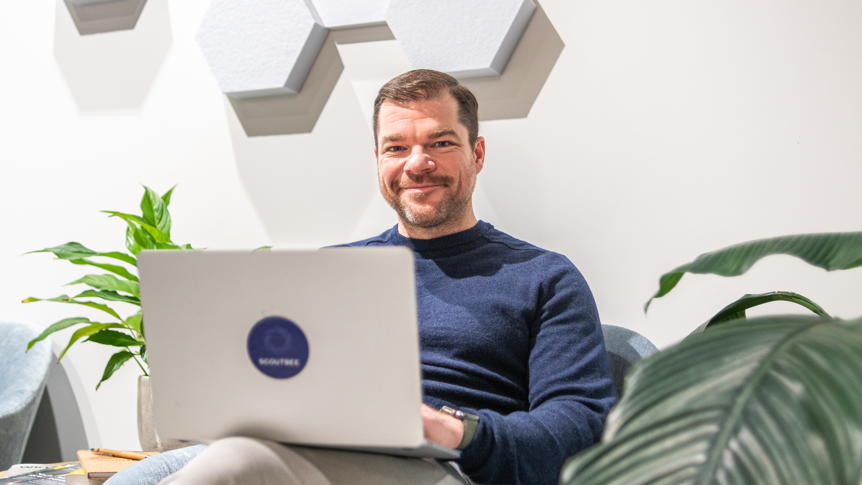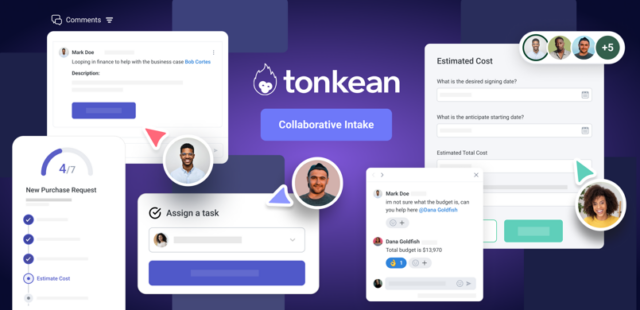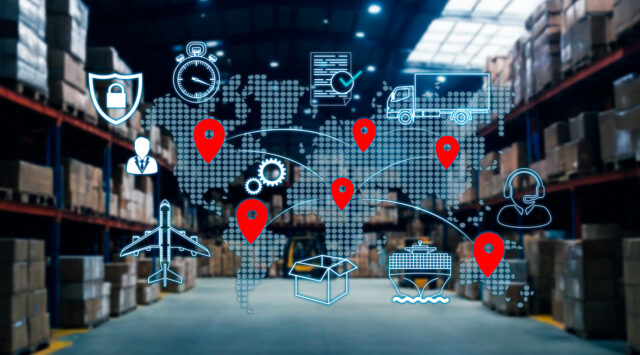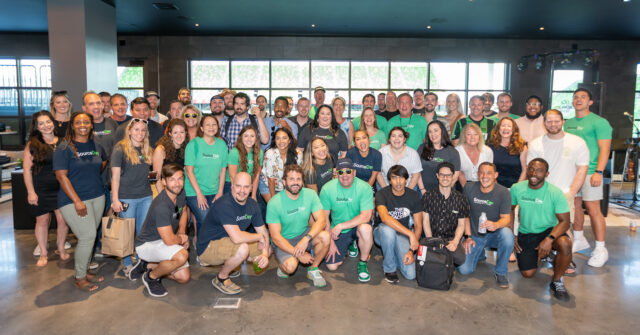Scoutbee was created with the idea of improving supply chain resilience through AI and big data to transform the way organisations use supplier data to discover and connect with suppliers.
The company, which was founded in 2015, offers an AI-powered Scoutbee Intelligence Platform (SIP) which uses graph technology and predictive and prescriptive analytics to deliver holistic supplier visibility that helps procurement make confident supplier decisions, drive cross-functional efficiency and optimise existing technology investments.
Scoutbee’s AI-driven data foundation connects teams to any data point, internal, external, third-party and more, as well as any data combination necessary to orchestrate a resilient, competitive and sustainable supply base.
Gregor Stühler is the CEO and Co-founder at Scoutbee. He believes that waiting to invest in AI tools and underlying data training will be companies’ greatest sustainable disadvantage of the next decade. “AI is not an off-the-shelf product, so you can’t buy AI unless it’s a pre-trained AI on a specific use case but then it’s not a competitive edge,” he tells us.
“A competitive edge only emerges when you have a clear use case and training on top of that. The companies that start using those AI solutions sooner with their data have much better training in place. As a result, they’ll always be ahead of the game quite significantly. Companies that use off-the-shelf AI products will do well, but the ones that actually take it meaningfully and start trading on their own use case and their own data will be the ones that will be accelerating.”

AI – Changing the game?
Karin Hagen-Gierer is CPO and Strategic Advisor at Scoutbee. She explains that there are a multitude of ways in which tools such as generative AI are having an impact on procurement to change the game.
“AI is great to help with mundane and boring tasks,” she discusses. “It can help us with vendor requests that come in and can be appropriately channelled. It can help your colleagues to navigate procurement. When they have questions, they can interact with a chat solution and be guided in a much better way to find what they want much quicker. I think if we look at how it can enhance our teams’ effectiveness, it is really in market analytics, supplier searches, supplier evaluations, and ChatGPT that could help us broaden the spectrum. If you then look to more tailored solutions like Scoutbee then it’s a very different ball game that procurement professionals have at their fingertips. I’m noticing a drive on both efficiency and effectiveness in this space.”
Despite AI’s draws, Stühler is well aware of the challenges and hesitations around digital technology. As far as he is concerned, there are two waves of generative AI to be aware of. “Wave one is about having a prompt and how tools such as ChatGPT can help with that,” he says. “For example, what are 10 RFI questions for aluminium cans?
“Wave two is where I merge and synthesise all of my data into our large language model and it has reasoning to drive decision-making and scenario planning. You do have to be careful though because you have to give the system all your critical data but you don’t want to input this into an open model. This means the use case has to be that you deploy a large language model in your own infrastructure, and own your own graphic card that will never actually leave your organisation.

“This is the biggest concern that we’re seeing because ChatGPT has brought a lot of progress but also a lot of questions. Now, when people hear that we want them to merge their data into a large language model that’s completely private, we’re met with some resistance when we explain to them that their large language model is running on their very own graphics card that we don’t have access to. That tends to give them more comfort to put their data into it,” he continues.
Stühler adds that he believes there are some misconceptions around ChatGPT and the nature of how accurate the data it provides actually is. As is the case with any new technology, these things take time. “It’s always the same. It happened with electric cars, nobody thought that would solve the battery issue,” he discusses. “I think we are right at the peak of the hype cycle when it comes to those things and people have figured out what they can use it for. With wave one of generative AI, it is fine to have hallucinations of the model and if something is spat out that is not supported by the input.
“But by the second use case, hallucinations are not okay anymore because it’s working with accurate data and should not come up with some imaginary creative answers. It should be always supported by the data that is put in. This is very important that people understand that if you train the model and if you have the right setting, those hallucinations will go away and you can actually have a setting where the output of the model is 100% accurate,” he further emphasises.
Procurement’s potential
According to Karin Hagen-Gierer, there is an incredible opportunity to create value in procurement today. Following unprecedented global challenges over the past few years, CPOs have never been in the boardroom so often – something she’s keen to stress.
“The value of procurement through crisis has been proven,” she says. “We tend to say, it’s not a core business, but very often if things don’t go right, it becomes core very quickly and you are in the CEO’s office more than you might like. It’s the breadth of the role that allows to drive value: You impact the P/L impact, topline, and the ESG agenda to name a few. But then there is a need to future-proof your team’s skill set around how you can drive more impact from being more effective in the respective tool sets you’re using, the questions you’re able to solve solutions for. Additionally, you have to work on improving your efficiencies. Teams are not getting bigger, so you need to be enabled in a very different way to really drive all this value.”

Stühler reflects on the past and admires the transformation procurement has undergone in the past decade since he joined the industry. “I came to procurement in 2012 and even then I remember this function being solely responsible for paying invoices and calling trucks to arrive sooner – at first glance,” he says. “Combined with the crises that now happened over the last couple of years, post-Covid has proven procurement’s value – and the impact organisations such as Scoutbee can make.
“I think two key things will happen in the future. Firstly, the tech landscape is exploding so quickly that there must be a consolidation that will happen. Secondly, when it comes to generative AI I think those pragmatic use cases will become the new normal. ChatGPT will be like Google today to get insights. Generative AI and large language models will get increasingly powerful over time and will help if you feed it the right data and connect it to different data streams that you have internally. It can become this true copilot and help you with complex scenario planning and make you aware of weak spots in your supply base while helping you to strategically take the right steps. The future is exciting,” he concludes.











